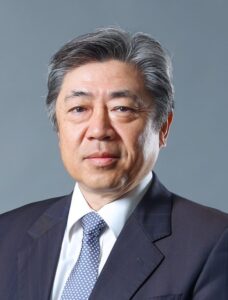
Hiroaki Toshima
Director-General of GLEC
Ibaraki University
The Global and Local Environment Co-creation Institute (GLEC) of Ibaraki University was established in April 2020 with the goal of creating a world-class research center for environmental science. It was formed through the integration of the Center for Water Environment Studies (CWES; established in 1956 as the Hinuma Hydrobiological Station) and the Institute for Global Change Adaptation Science (ICAS; established in 2006).
Both of GLEC’s predecessors boasted a long track record of groundbreaking sustainable development initiatives dating to well before the Sustainable Development Goals (SDGs) were adopted at a UN summit in 2015, raising the importance of the SDGs and global awareness about environmental issues. GLEC adds two new divisions, the Division of Environmental Adaptation in Agriculture and Ecosystems and the Division of Human and Socioeconomics, to the solid foundation of the two preexisting divisions, the Division of Environment in Basin Areas and the Division of Climate Change, bringing the number of divisions to four. In all four disciplines, GLEC aims to promote comprehensive research on global and local environmental issues, ranging from field science to forecasting and policy studies. Our goal is to build a world-class environmental research center with enhanced functions of education and research and social collaboration, focused on co-creation of a sustainable environment for solving environmental problems.
GLEC will serve as a platform for generating research findings on environmental issues through cross-disciplinary studies that integrate humanities and sciences, or in other words through “co-creation.” Under a university-wide system of cooperation, we are also developing educational programs by combining our accumulated store of knowledge with the latest research findings. Today, there are many words with “environment” around us in the world. For everyone, environmental issues and SDGs are related in some way. As individuals, there may be limits to our awareness and approach to environmental issues, but by sharing our awareness and issues with people of diverse backgrounds it is possible to create various kinds of solutions. Individual differences in environmental awareness and issues can also lead people to a shared recognition of a common challenge. We look forward to sharing the fruits of GLEC’s co-creation efforts (in the form of policy proposals and new technology development).
